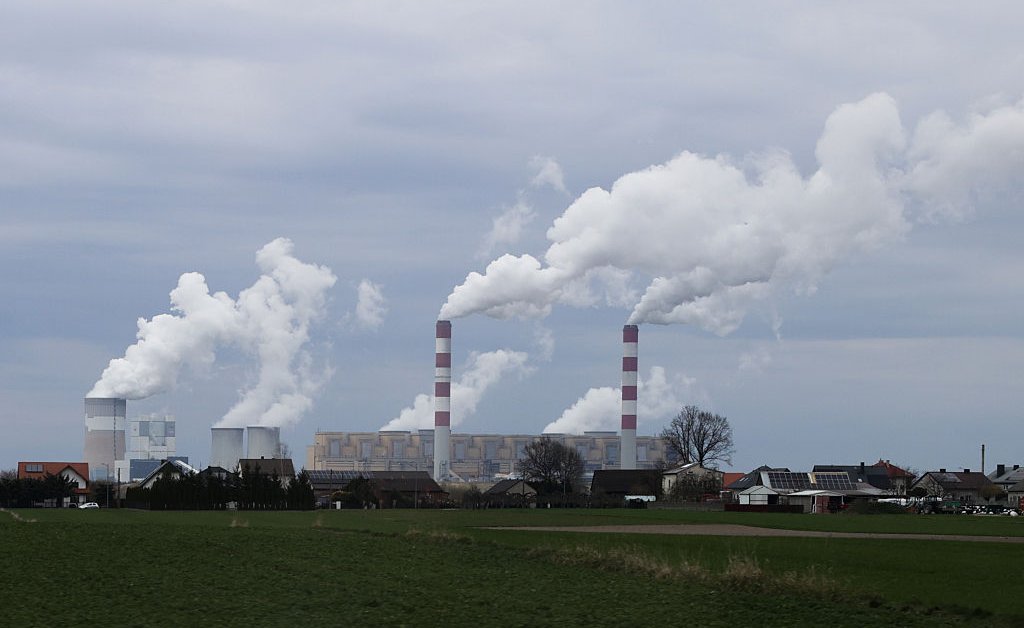Cleaner Air, Fewer Deaths: The Public Health Benefits Of Emission Cuts

Welcome to your ultimate source for breaking news, trending updates, and in-depth stories from around the world. Whether it's politics, technology, entertainment, sports, or lifestyle, we bring you real-time updates that keep you informed and ahead of the curve.
Our team works tirelessly to ensure you never miss a moment. From the latest developments in global events to the most talked-about topics on social media, our news platform is designed to deliver accurate and timely information, all in one place.
Stay in the know and join thousands of readers who trust us for reliable, up-to-date content. Explore our expertly curated articles and dive deeper into the stories that matter to you. Visit Best Website now and be part of the conversation. Don't miss out on the headlines that shape our world!
Table of Contents
Cleaner Air, Fewer Deaths: The Public Health Benefits of Emission Cuts
Air pollution is a silent killer, responsible for millions of premature deaths globally each year. But a growing body of evidence shows that reducing emissions, particularly from vehicles and industrial sources, can significantly improve public health and save lives. This isn't just about environmental protection; it's a critical public health imperative.
The Deadly Impact of Air Pollution:
Air pollution, a complex mixture of gases and particulate matter, wreaks havoc on human health. The World Health Organization (WHO) estimates that 7 million deaths annually are linked to air pollution exposure. This includes deaths from:
- Cardiovascular diseases: Fine particulate matter (PM2.5) penetrates deep into the lungs and bloodstream, triggering inflammation and contributing to heart attacks and strokes.
- Respiratory illnesses: Pollution exacerbates asthma, bronchitis, and other respiratory conditions, leading to hospitalizations and premature mortality.
- Lung cancer: Long-term exposure to air pollutants, especially carcinogens like benzene, significantly increases the risk of lung cancer.
- Other health problems: Air pollution has also been linked to neurological disorders, diabetes, and even developmental problems in children.
The Promise of Emission Cuts:
Fortunately, the solution is within reach. Significant reductions in greenhouse gas emissions and other pollutants, driven by policies like stricter emission standards, investment in renewable energy, and improved public transportation, translate directly into healthier populations. Studies have repeatedly demonstrated a strong correlation between improved air quality and decreased mortality rates.
Success Stories and Case Studies:
Many cities around the world are showcasing the benefits of ambitious emission reduction targets. London, for example, has implemented a Congestion Charge and an Ultra Low Emission Zone, leading to noticeable improvements in air quality and a decrease in respiratory illnesses. Similarly, Copenhagen's extensive cycling infrastructure and commitment to public transport have contributed to a cleaner and healthier urban environment. These success stories highlight the potential for positive change on a global scale.
Investing in a Healthier Future:
The economic benefits of emission cuts are also compelling. Reduced healthcare costs resulting from fewer pollution-related illnesses and increased worker productivity due to improved health offset the initial investment in cleaner technologies. This makes emission reduction a financially sound strategy, in addition to being ethically and environmentally responsible.
What You Can Do:
While large-scale policy changes are crucial, individual actions also play a significant role. Consider these steps to contribute to cleaner air:
- Support sustainable transportation: Walk, cycle, use public transport, or choose fuel-efficient vehicles.
- Reduce energy consumption at home: Improve energy efficiency and consider renewable energy sources.
- Advocate for cleaner air policies: Contact your elected officials and support initiatives aimed at reducing emissions.
- Learn more about air quality: Monitor local air quality reports and take precautions during periods of high pollution.
Conclusion:
The link between cleaner air and fewer deaths is undeniable. Investing in emission reduction strategies is not merely an environmental concern; it's a vital public health investment that will save lives and create healthier communities for generations to come. The time to act is now. By embracing sustainable practices and advocating for strong policies, we can pave the way for a cleaner, healthier future for all. Learn more about air quality initiatives in your area by searching "[Your City/Region] air quality improvement plan" online.

Thank you for visiting our website, your trusted source for the latest updates and in-depth coverage on Cleaner Air, Fewer Deaths: The Public Health Benefits Of Emission Cuts. We're committed to keeping you informed with timely and accurate information to meet your curiosity and needs.
If you have any questions, suggestions, or feedback, we'd love to hear from you. Your insights are valuable to us and help us improve to serve you better. Feel free to reach out through our contact page.
Don't forget to bookmark our website and check back regularly for the latest headlines and trending topics. See you next time, and thank you for being part of our growing community!
Featured Posts
-
 Livestream Coverage Day To Day Updates From Karen Reads Retrial
May 09, 2025
Livestream Coverage Day To Day Updates From Karen Reads Retrial
May 09, 2025 -
 Rebel Wilson On Motherhood Career Pivots And Regret
May 09, 2025
Rebel Wilson On Motherhood Career Pivots And Regret
May 09, 2025 -
 Wall Street Journal Coinbase In Talks To Acquire Deribit For 2 9 B
May 09, 2025
Wall Street Journal Coinbase In Talks To Acquire Deribit For 2 9 B
May 09, 2025 -
 Wednesdays Developments Hypothermia Search In John O Keefe Death Probe
May 09, 2025
Wednesdays Developments Hypothermia Search In John O Keefe Death Probe
May 09, 2025 -
 The Future Of The Catholic Church Inside The Upcoming Papal Election
May 09, 2025
The Future Of The Catholic Church Inside The Upcoming Papal Election
May 09, 2025
